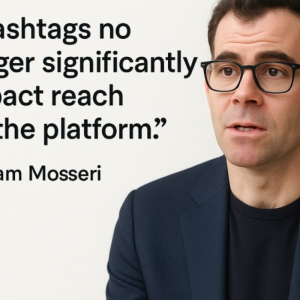Renowned tech entrepreneur and anti-aging advocate Bryan Johnson recently made headlines when he abruptly exited a podcast recording with Zerodha co-founder Nikhil Kamath, citing intolerable air quality. Johnson, known for his extreme longevity experiments, revealed that India’s air pollution triggered a rash and caused burning sensations in his eyes and throat.
Bryan Johnson’s Air Pollution Struggles in India
During his recent visit to India, the 47-year-old tech mogul was invited to record an episode for Kamath’s podcast, WTF, at a luxury five-star hotel. The room was equipped with an air purifier, and Johnson took extra precautions by wearing an N95 mask. However, despite these measures, he could not withstand the deteriorating indoor air quality, which had an AQI (Air Quality Index) of around 120.
At one point in the discussion, Johnson even remarked, “I can’t see you over there,” highlighting the severity of air pollution in India. As the AQI inside the room climbed to 130, with PM2.5 levels reaching 75 micrograms per cubic meter—equivalent to smoking 3.4 cigarettes over 24 hours—he decided to leave the podcast midway.
Johnson’s Concerns Over India’s Air Pollution
Following the incident, Johnson took to X (formerly Twitter) to confirm his abrupt exit. He praised Nikhil Kamath as a “gracious host” but pointed out that the room’s ventilation was circulating outdoor air, rendering his air purifier ineffective. After spending just three days in India, he developed a skin rash and persistent eye and throat irritation, reinforcing his concerns about the country’s air pollution crisis.
Johnson criticized the normalization of hazardous air quality in India, stating that people—including children and infants—were routinely exposed to pollution without adequate protective measures. “No one wore a mask, which can significantly decrease exposure. It was so confusing,” he remarked, questioning why Indian authorities had not declared air pollution a “national emergency.”
Air Pollution Worse Than Cancer?
The entrepreneur further stressed that tackling air pollution in India would have a greater impact on public health than curing all forms of cancer. Citing research, he argued that India’s leadership should prioritize clean air policies to prevent long-term health risks.
Johnson also drew parallels between India’s air pollution crisis and America’s obesity epidemic. “When I returned to the US, my eyes were fresh to see what is normalized to me. I saw obesity everywhere. 42.4% of Americans are obese, and because I was around it all the time, I had been mostly oblivious to it,” he said, highlighting how public health crises are often overlooked in familiar environments.
Johnson’s Air Pollution Solutions for India
Last month, Johnson shared practical solutions for combating air pollution in India. His team demonstrated the effectiveness of portable air quality monitors, sealed car windows, N96 masks, and portable air purifiers in reducing pollution exposure.
Meanwhile, as Delhi’s AQI dipped below 300, the Commission for Air Quality Management (CAQM) recently lifted Stage 3 restrictions of the Graded Response Action Plan (GRAP). However, Johnson’s experience serves as a stark reminder that India’s air pollution crisis remains a pressing issue that demands urgent attention.
Also Read : Apoorva Mukhija’s Bold Stand at Delhi Technological University: A Lesson in Self-Advocacy
Final Thoughts
Bryan Johnson’s decision to walk out of the podcast underscores the dire state of air quality in India’s urban centers. With increasing health risks associated with prolonged exposure to pollutants, it is imperative for the government, businesses, and individuals to implement proactive solutions. The billionaire’s perspective sheds light on a harsh reality—clean air is not a luxury but a necessity that should be accessible to all.










